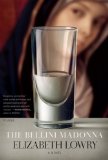Book Club Discussion Questions
In a book club? Subscribe to our Book Club Newsletter and get our best book club books of 2025!
For supplemental discussion material see our Beyond the Book article, Lost and Stolen Treasures and our BookBrowse Review of The Bellini Madonna.
Please be aware that this discussion guide will contain spoilers!
About this Guide
The following author biography and list of questions about
The Bellini Madonna are intended as resources to aid individual readers and book groups who would like to learn more about the author and this book. We hope that this guide will provide you a starting place for discussion, and suggest a variety of perspectives from which you might approach
The Bellini Madonna.
Discussion Questions
- Lowry's essay "The Visitable Past" outlines the ways in which the relationship between Anna and Lynch is similar to that of the duke and duchess of Browning's "My Last Duchess." In addition to the list of ways that Anna is similar to the Duchess, can you think of any ways in which she is different? Does Lynch do what he did for the same reasons the duke had his wife killed? Do his penitence and confession (in the form of this book) earn him any form of redemption?
- Innocence is a major theme of The Bellini Madonna, and of Browning's "My Last Duchess." Lynch reflects (p108) "If I could only learn to see, always, with an innocent eye, all the purposes of my life would suddenly stand revealed." Who are the most innocent characters at the start of the novel and how do they relate to the duchess of Browning's poem? Does this change at all by the book's conclusion? Is the fantasy scene at the very end of the book (p328-29) Lynch finally learning to see with innocent eyes or does he once again worship an image rather than the real thing? Do you believe innocence can be re-learned?
- What draws Lynch repeatedly back to Roper's diary while he explores Mawle and falls for Anna—is it more than just his search for the Madonna? Do you take it as a breakthrough for Lynch when he says, "In short, I was developing an interest in Anna and James Roper for their own sakes" (p147)? What, if anything, does he want to learn? What parallels do you see between Lynch, Anna, and Harry and Roper, Giulia, and Giuseppe?
- Early on (p19) Dürer is told by Bellini, "Your art has too much rhetoric about it.... You forget that while ideas and words themselves may be abstract, painting is not." And after seeing Bellini's Madonna del prato (p61), Dürer creates a painting free of this "rhetoric." What does rhetoric mean in this sense? How do you think it applies to painting and other art forms? Discuss some examples of art that is encumbered by rhetoric and art that is not—do you think this is determined by more than opinion? Is it something that can be cured by collaboration, as in Dürer's case?
- Re-read the novel's epigraph from Browning's Asolando. How does it speak to the theme of deceit and misunderstanding throughout the novel? Repeatedly characters are searching for
what is right in front of them or misperceiving what should be obvious. Is the key to unraveling appearance vs. substance tucked away in Bellini's advice to "paint what is in front of your nose," "find the unearthly in the earthly" (p189-90)?
- In his description of Bellini's final Madonna (p21) Dürer says that Christ is the "great work of her life, the work of her imagination." What was it about the Madonna that made bearing and raising Christ a creative act? Dürer says that the center of the painting was "the cost of [Christ]'s life and death to the woman who bore him" (22). What was that cost? Is the same true of motherhood in general?
- Browning discusses what it means to asolare, saying that "wasting time is an important part of living, rather like being in love" (p201). Isn't most of the time Lynch spends at Mawle House an example of the temptation to asolare? Does this contribute to his surge of feelings for Anna? Do periods of idleness and leisure allow more room for love to develop?
- The portrait of Giulia by Giuseppe sharing a canvas with Bellini's final masterpiece embodies the conflict running throughout the novel between art that attempts to portray the ideal and art that tries to portray the real. In what ways does Lynch undergo this conflict as his desire shifts from the painting to Anna? How does his perception of the Bellini Madonna's importance alter? Do you think he is left fundamentally changed?
- Does the mazelike and shifting Mawle House seem to represent the shifting of different characters' identities? Whose and how? What could the rose garden planted by Roper on his return from Asolo symbolize?
- If Lynch had been a drastically different man, how would things have worked out with Anna? Would many of Lynch's misunderstandings about her have been avoided? What would have had to be different in him for him to have stayed at Mawle? What if he had just reached a few of his realizations earlier?
For more information on Picador Reading Group Guides:
Call: 646-307-5259
Fax: 212-253-9627
E-mail: readinggroupguides@picadorusa.com
Unless otherwise stated, this discussion guide is reprinted with the permission of Picador.
Any page references refer to a USA edition of the book, usually the trade paperback version, and may vary in other editions.
